32 Week Preemie – Causes, Development & How to Care

When a woman has a full-term pregnancy, it helps in the proper growth and development of her baby. But it is not always possible for a woman to complete the full term of pregnancy as certain complications during pregnancy may lead to premature delivery. Babies born before the 37th week of pregnancy are termed as preterm babies. In this article, we will give you information about the babies who are born at the 32nd week of pregnancy. Read on to know why a child may be born at 32 weeks, the possible complications he may face, and more.
What Does a Baby Look Like at 32 Weeks?
At 32 weeks of pregnancy, a baby typically weighs around 3.75 to 4.19 pounds (1.7 to 1.9 kilograms) and measures about 16.7 to 17.4 inches (42.4 to 44.2 centimeters) from head to heel. The skin is becoming less wrinkled as fat accumulates. At this stage, the skin may have acquired opacity, but the underdeveloped state of muscles and fat may result in a slender appearance, particularly noticeable in their limbs. The organs are functioning, and the baby is practicing breathing movements, even though the lungs are not fully matured yet. At this stage, the baby’s eyes can open and close, and they are gaining more control over body movements.
What Happens When Your Baby Is Born at 32 Weeks?
A baby born at 32 weeks may be considered moderately preterm. At this stage, the baby is likely to require medical attention and care in a neonatal intensive care unit (NICU). Common challenges for babies born at 32 weeks include underdeveloped lungs, difficulty regulating body temperature, and potential feeding issues. They may receive respiratory support, such as oxygen therapy, and may need assistance with feeding until they can coordinate sucking and swallowing. The length of the NICU stay will depend on the baby’s overall health and how well they respond to medical interventions. Medical professionals will closely monitor the baby’s progress and provide specialized care to support their development until they are ready to go home.
What Causes Childbirth at 32 Weeks?
A baby may be born at 32 weeks of pregnancy because of the following factors.
- Presence of multiple babies, such as twins or triplets.
- Problems in the placenta that may lead it to be separated early.
- When the placenta is unable to provide enough oxygen and nutrition to the baby.
- The pregnant woman has an infection.
- Consuming illegal drugs, drinking alcoholic beverages, or smoking while pregnant.
- An irritable uterus or an incompetent cervix leading to failure in holding the baby securely.
- Maternal health conditions such as high blood pressure or preeclampsia.
- Previous preterm birth or a history of pregnancy complications.
Development of a Premature Baby Born at 32 Weeks
Babies born at 32 weeks of pregnancy generally weigh around 1.5 kgs and are usually 20 inches in length. Most babies can breathe by themselves even though their lungs are not developed fully by this time. But they need a supplementary an oxygen supply to help maintain healthy oxygen levels in the body. This is why they have to stay in the NICU of the hospital. As the reflexes of swallowing and sucking do not develop in babies up until around 34 weeks of pregnancy, they aren’t able to eat or rather suck on their own. Hence, they receive nutrition and fluids intravenously, i.e., through an IV.
In some premature babies, the hair will be present in good quantities, while others may have only a few. In male babies, testicles usually descend down into the scrotum but for some, it may happen over time. A baby born at 32 weeks should be totally aware of his surroundings, as all of his senses should function pretty well, and may rarely have any disabilities related to sensory perception.
Babies gain a considerable amount of body fat by this time and may look plump. But if the baby does not put on weight, he may be kept in an incubator to keep his body temperature warm.
Health Complications Faced By a Baby Born at 32 Weeks of Pregnancy
For a baby born at 32 weeks, complications can quickly get out of hand if immediate precautions are not undertaken and the right type of care is not administered. A baby born at 32 weeks of pregnancy may face the following health issues.
1. He is Likely to Be Born Underweight
A premature baby may be born underweight or sometimes, with low birth weight. Since the weight of the child is not at a level that it ought to be, feeding the child becomes the prime priority to help him gain the weight. If he doesn’t gain weight, he may suffer from hypothermia. Hence, he will be placed in an incubator until the weight gain is normalized over the next few weeks.
2. He May Not Be Able to Suck
As the sucking reflex develops in the babies around 34 weeks of gestation, the preemie born at 32 weeks may not be able to feed or suckle at the breast successfully. At times, underdeveloped babies also find it hard to digest breastmilk effectively, which may lead to further health complications. In such a case, the baby will be given nutrition intravenously, i.e., through an IV.
3. He May Have Brain Development Issues
A baby born at 32 weeks is likely to have learning and behavioural problems as his brain may not be fully developed by now. By the 32nd week of pregnancy, the baby’s brain is developed only 66% of its final development stage which is why doctors might keep him in the NICU.
4. He May Have a Weak Immune System
A baby’s immunity receives a mega-boost from the pregnant woman in the final stages of her pregnancy. But due to premature birth, the baby may not have a strong immune system, hence making him an easy target for infections. The tubes and injections being used to support the child may also lead to an infection in him.
5. Respiratory Distress Syndrome (RDS)
Premature babies born at 32 weeks may face Respiratory Distress Syndrome, a condition characterized by difficulty breathing due to underdeveloped lungs. This often necessitates respiratory support and may involve the administration of surfactants to help the lungs function more effectively.
6. Patent Ductus Arteriosus (PDA)
The ductus arteriosus, a blood vessel that connects two major arteries before birth, is essential for fetal circulation. In premature infants, the ductus arteriosus may remain open (patent) when it should close. This can affect blood flow and oxygenation, and medical intervention may be necessary to address this condition.
Treatment for Babies Born at 32 Weeks
Premature babies born at 32 weeks often require specialized medical care to support their development and address potential health challenges. Here are some common treatments and interventions for babies born at 32 weeks:
- Premature infants may need assistance with breathing, such as continuous positive airway pressure (CPAP) or mechanical ventilation.
- These babies may have difficulty maintaining body temperature, so incubators or radiant warmers help keep them warm.
- Premature infants may have underdeveloped sucking and swallowing reflexes, so they might be fed through a tube initially until they can coordinate feeding on their own.
- Continuous monitoring of oxygen levels in the blood helps ensure that the baby is receiving enough oxygen.
- Premature babies are more susceptible to jaundice, and treatment may involve phototherapy to help break down bilirubin.
- In some cases, premature infants may receive nutrition through intravenous lines until they can tolerate feeding by mouth.
- Given their underdeveloped immune systems, premature babies may receive antibiotics to prevent or treat infections.
- Supportive care practices, such as minimizing stimulation and providing a quiet environment, help with the baby’s overall development.
How to Take Care of a Preemie Born at 32 Weeks?
By undertaking proper prenatal care, the risks of premature birth can be minimized and premature labour itself can be stopped or delayed. But if the baby is born at 32 weeks of pregnancy, he must be fed well. Since feeding is paramount, the baby can be given breastmilk via a nasogastric tube. A baby is most likely to stay in NICU which will be beneficial for his health.
Doctors also recommend kangaroo care, as it helps in the growth of the baby. Kangaroo care basically means giving skin-to-skin contact to the baby as it helps with the baby’s immunity and weight. If your baby is born at 32 weeks, you can hold your baby against your bare breasts for as long as possible to keep him naturally warm and safe.
You should be careful about taking the baby home once he is discharged from the NICU. Keep the environment in and around your home safe and disinfected. Your premature baby might face developmental delays too, so you can look for special programs that can help your child learn things the right way and help him develop as soon as possible.
What Is the Survival Rate of Babies Born at 32 Weeks?
The chances of survival of a baby born in the 7th month are quite high. Advancement in medical science and technology has made it possible to use cutting-edge equipment and techniques to reduce infant mortality and ensure that your baby can grow up in a healthy manner. But it also depends on the health condition of the baby. Doctors alone can tell whether a baby born at 7 months can survive or not.
How Long Will a Baby Born at 32 Weeks Stay in the NICU?
A 32 week baby is born prematurely, and you might wonder for how long would he have to stay in the hospital. You might want to take your little one to the safety of your home and take care of him on your own. But he will need to stay in NICU until he is fine. Preterm babies sometimes tend to resemble a full-grown newborn but they are not completely developed and are yet to reach a level where they can sustain themselves.
For a baby to be discharged from the hospital, his immune strength should catch up in order to fight off infections successfully. His strength to be able to suckle at the breasts should manifest too so that the tubes can be removed and the baby can suckle at the breasts naturally. Once your baby develops completely and meets all his milestones, like feeding, breathing on his own, being able to stay warm without any external support, then only will the doctor discharge the baby.
Giving birth to a baby at 32 weeks of pregnancy can be quite unnerving for a new mom. But by taking measures to protect the baby and letting him develop in a secure environment, you can return home with your baby within a few weeks and raise him up with your unconditional love.
References/Resources:
1. Breastfeeding your premature baby; NHS UK; https://www.nhs.uk/conditions/baby/breastfeeding-and-bottle-feeding/breastfeeding/premature-baby/
2. Health Outcomes for Preemies; Health University of Utah; https://healthcare.utah.edu/womens-health/pregnancy-birth/preterm-birth/when-is-it-safe-to-deliver
3. Pierrat. V, Marchand-Martin. L, Arnaud. C, Kaminski. M, et al.; Neurodevelopmental outcome at 2 years for preterm children born at 22 to 34 weeks’ gestation in France in 2011: EPIPAGE-2 cohort study; the BMJ; https://www.bmj.com/content/358/bmj.j3448.long; August 2017
4. Preterm Birth; Centers for Disease Control and Prevention; https://www.cdc.gov/reproductivehealth/maternalinfanthealth/pretermbirth.htm
5. Torchin. H, Ancel. P; Epidemiology and risk factors of preterm birth (Journal de gynécologie, obstétrique et biologie de la reproduction); National Library of Medicine; https://pubmed.ncbi.nlm.nih.gov/27789055/; December 2016
6. Underwood. M; Human milk for the premature infant (Pediatric Clinics of North America); National Library of Medicine; https://www.ncbi.nlm.nih.gov/pmc/articles/PMC3508468/; October 2012
7. Preterm birth; World Health Organization; https://www.who.int/news-room/fact-sheets/detail/preterm-birth
Also Read:
Baby Born at 33 Week of Pregnancy
Baby Born at 35 Week of Pregnancy
How to Take Care of Premature Baby at Home?
How to Help Your Premature Baby Gain Weight?
Was This Article Helpful?
Parenting is a huge responsibility, for you as a caregiver, but also for us as a parenting content platform. We understand that and take our responsibility of creating credible content seriously. FirstCry Parenting articles are written and published only after extensive research using factually sound references to deliver quality content that is accurate, validated by experts, and completely reliable. To understand how we go about creating content that is credible, read our editorial policy here.






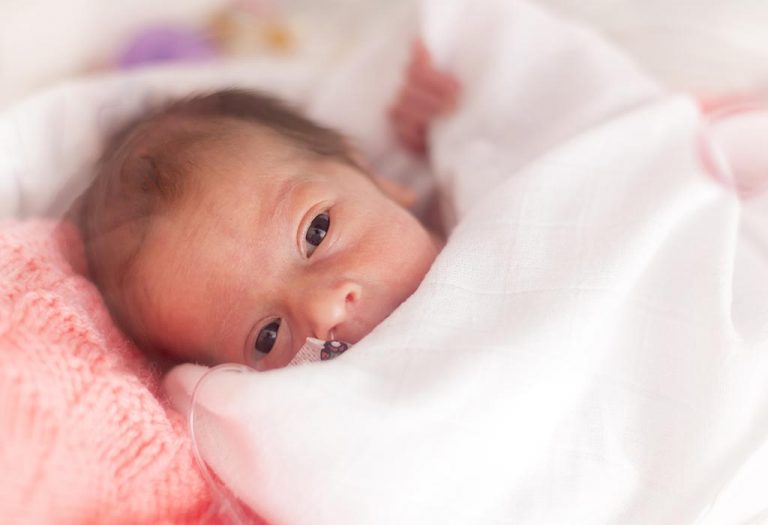


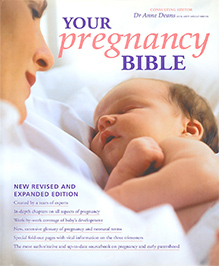
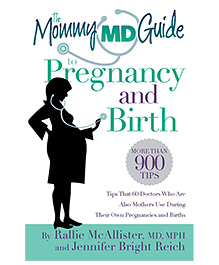
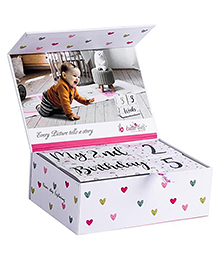

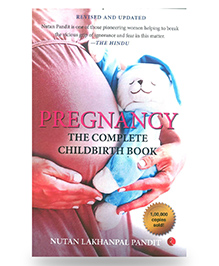

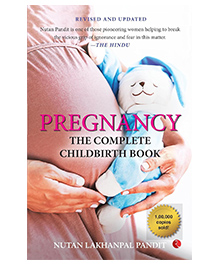


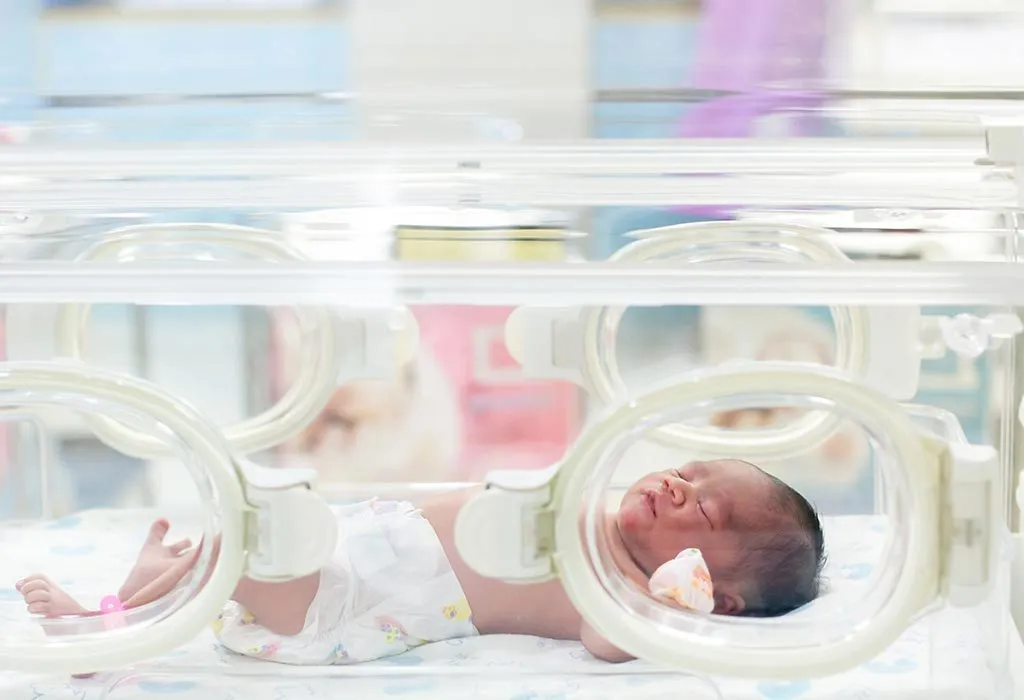

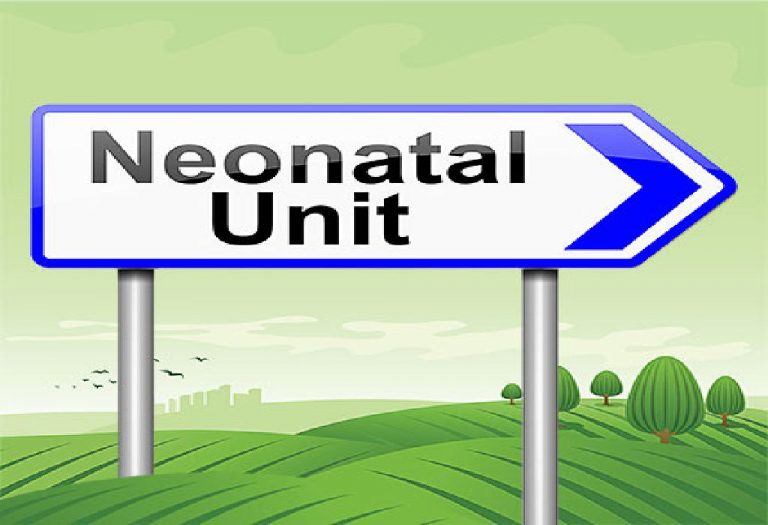
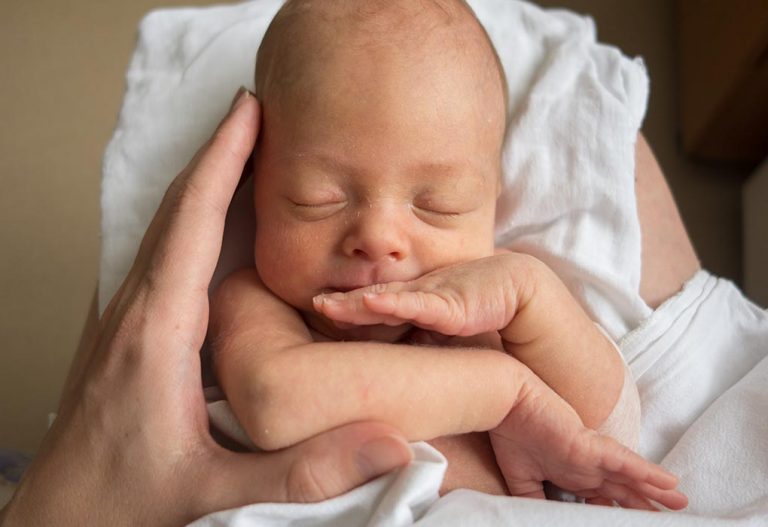
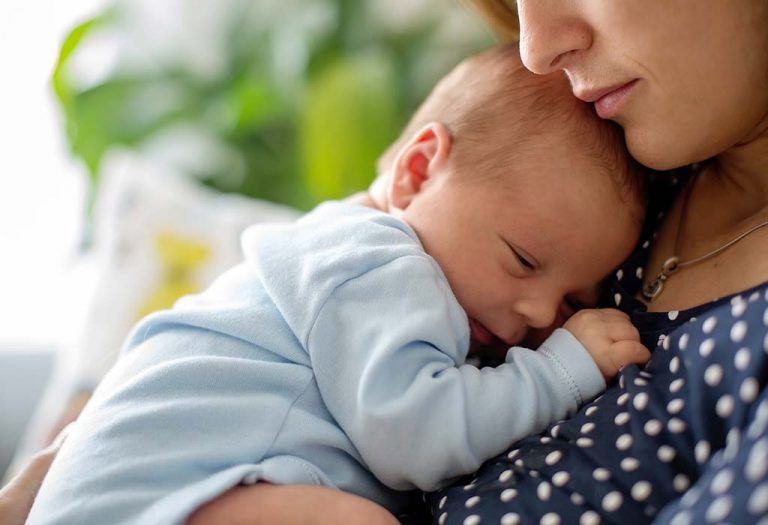

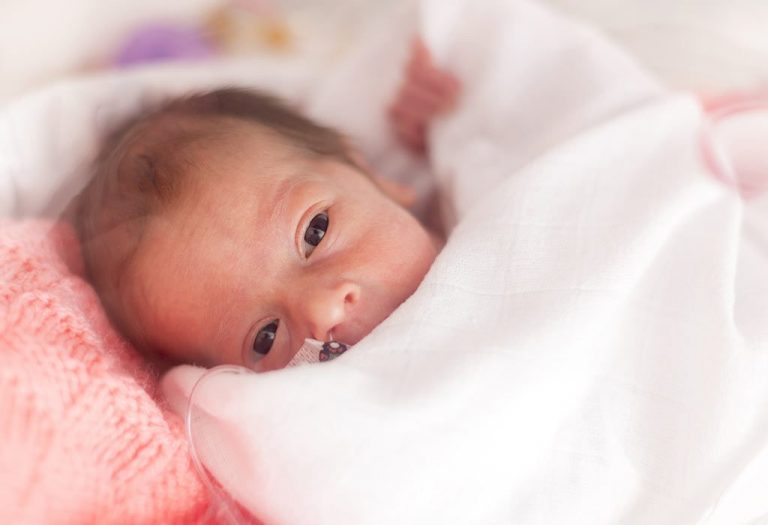

.svg)


















